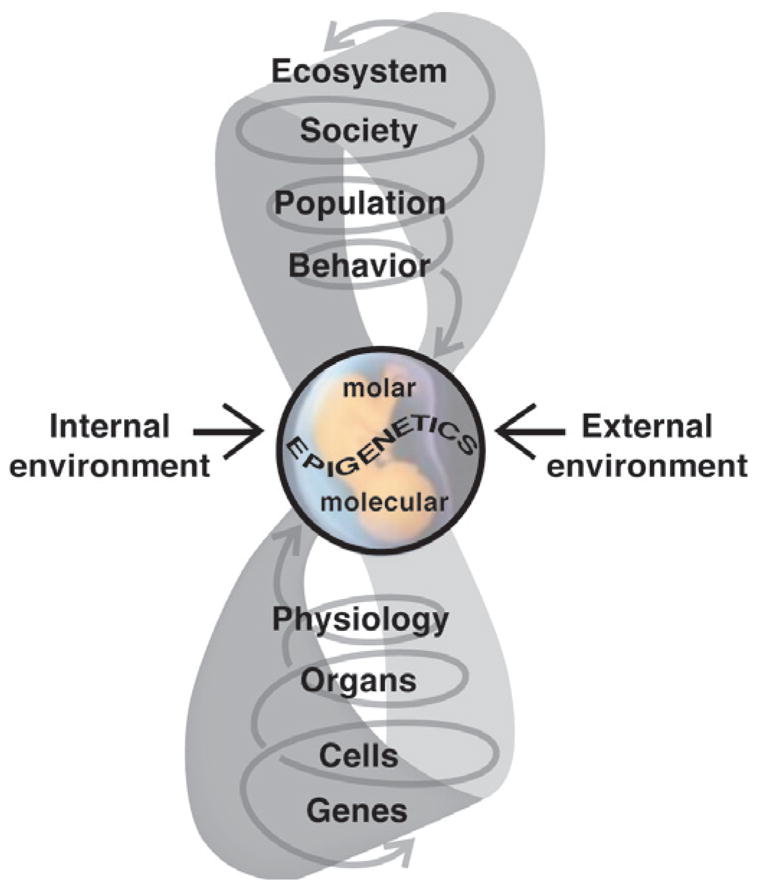Fig. 1.

The external environment interacts with the internal environment to influence fetal development with both immediate and life-long consequences. Such environmentally-induced changes can occur at all levels of biological organization, from the molecular to the organism’s behavior, and tend to be amplified in their consequences as they ascend through these levels. Ultimately, these influences may be epigenetic in nature, inducing heritable alterations in gene expression without changing the DNA. Changes can occur at the physiological and morphological levels (Molar Epigenetics) as well as modification of normal patterns of gene expression (Molecular Epigenetics). These alterations can bring about functional differences in brain and behavior that result in changes in the phenotype. These then modify how individuals respond to conspecifics and their environment, bringing about changes at higher levels of biological organization. Whether these eventually can have an evolutionary impact is still open to question. What is known is that human society has changed the ecosystem in a manner that has had demonstrable impact on the health of humans and wildlife. Figure modified from Crews and McLachlan [21].
